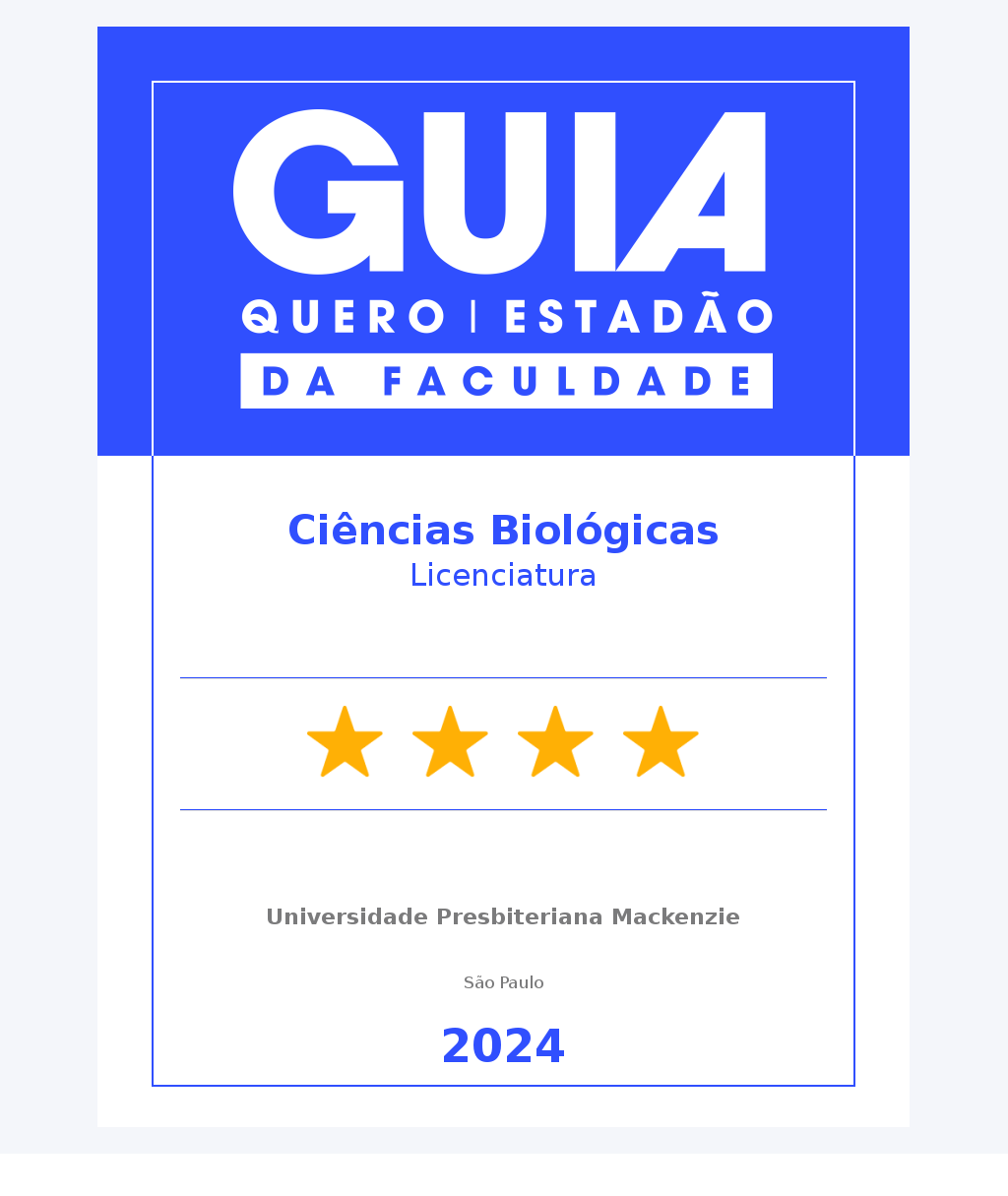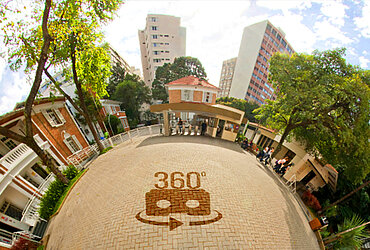Biological Sciences study living beings and the relationship between them and the environment, building knowledge about the processes and mechanisms that regulate life. Therefore, the biologist is trained in molecular function, the morphological and physiological aspects of living beings and the relationships between the biotic and abiotic components of the different ecosystems, in order to be able to contribute to the production of scientific knowledge, the development of technologies and in the scientific education of human societies.
In our course, the student is encouraged to undertake investigative research, and is supported by a highly qualified faculty, excellent infrastructure and equipment in 14 state-of-the-art laboratories, as well as a vivarium, herbarium and paleontological collection. We also have an environmental studies center in the city of Campos do Jordão, with facilities for overnight stays for under-graduate classes.
Practical classes and field trips are included in the curriculum at all stages, as well as a sustained focus on professional training, with internships, scientific training and introductory science courses that can be carried out in the renowned institutions that have technical-scientific agreements with the university or, even more conveniently, in our Biological Sciences Research Center, which has a set of laboratories focused on research lines in the areas of biotechnology, environment, health and education.
Job Market
Biologists work in the areas of the environment, health and biotechnology, with the ability to apply scientific methodology in the planning, management and execution of their work. They carry out research projects, laboratory analyses, offer consulting and technical advice, issue reports and assessments and work as teachers in secondary education.
Reviews and Awards



![Universidade Presbiteriana Mackenzie [Universidade Presbiteriana Mackenzie]](/fileadmin/CONFIGURACOES/DEFAULT_21/Resources/Public/Template/img/logo/universidade_mack_v2.svg)


